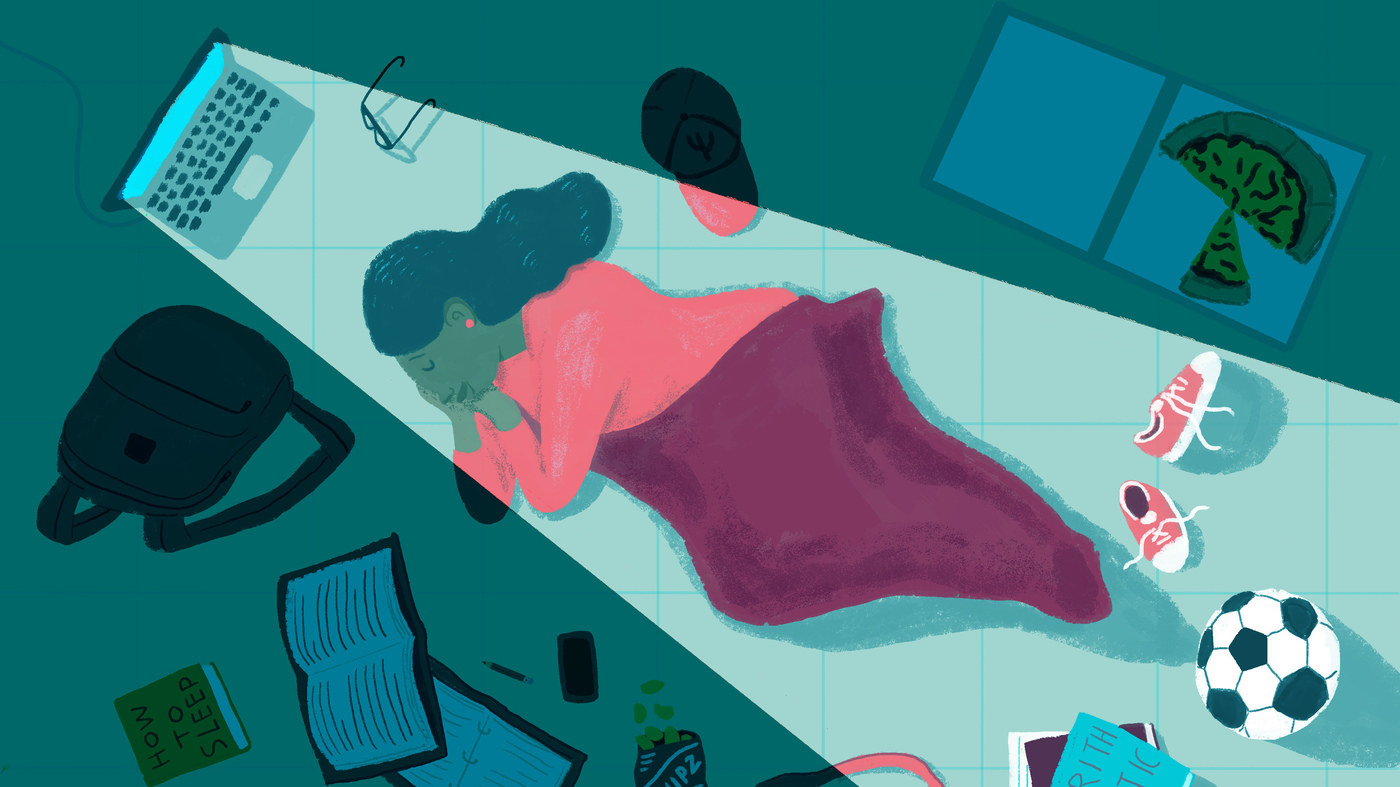Don't let the students posting Snapchat stories of how late they've been cramming at McLennan fool you—there's nothing glamorous about insomnia. The condition, which affects 30 to 50 per cent of the United States population, can be one of detrimental to both academic success and student wellbeing.
I would know: In the winter of 2017–my first year at McGill–I developed chronic insomnia. Previously, while I was never the model sleeper, I at least slept an average of seven hours per night. After coming to university, however, my sleep quality began to drop drastically. By March, I was happy if I got even three hours of sleep at night. Looking back, I can now see clear signs that something was wrong. Insomnia is more than not getting enough sleep; it’s a reduction in quality of life. My days and nights blurred together, my mood became irritable, and I suffered from daily headaches, muscle tension, and overall sluggishness.
But perhaps the worst effect of insomnia—and one that I think often goes unmentioned—is feeling like you’ve lost control of your life. As I slept less and less, I couldn’t tell when I would wake up, and it didn’t help that I had 8:30 a.m. classes everyday. Even when I did manage to wake up and make it to class, I would often crash in the afternoons. I felt out of sync from everyone around me, who seemed perfectly fine navigating night to day.
When I missed a morning midterm because I fell asleep without realizing it, I knew I had to get professional help. In doing so, however, I faced a handful of problems. With my sleep issues, making the 8 a.m. registration at the McGill Health Clinic felt nearly impossible. Even when I managed to drag myself to the clinic, I was turned down twice, and ultimately had to wait three more weeks to see a doctor. Accessing McGill’s resources was stressful, but when I finally got to see a professional at the Clinic, things started to look up.
At the Clinic, I took a complete blood test and discovered I had a severe iron deficiency. I hadn’t anticipated how much my micronutrient intake could affect the quality of my sleep. Taking supplements didn’t solve my problem overnight, but I did begin to feel more energetic after a few weeks. I was also referred to a counsellor, as chronic insomnia is usually a result of stress. Using McGill’s services, I was able to identify some underlying issues that were keeping me awake.
Nevertheless, insomnia took months to improve. While I did everything my doctors told me to, I came up with some invaluable ‘sleep hacks’ of my own. In hindsight, the process helped me understand my own needs more; I came to realize that conventional ‘sleep hygiene’ methods—like avoiding naps, taking baths, and developing sleep rituals—don’t work for everyone. For instance, while exercising is not recommended before bed, I found that I slept better on the days I exercised in the evening and took a warm shower afterward, as I tired my body and cleared my brain before dozing off.
I also realized that I would spend an irrational time keeping myself ‘busy’ well past 2 a.m., even though I knew how much I needed to sleep. I’ve had many negative experiences trying to sleep but not being able to, and at some point, I began to avoid heading off to bed, which didn’t allow my sleep cycle to improve. I worked around my avoidance of sleep by slowly reducing the lighting in my room, tricking me into getting to bed without actually feeling the pressure to sleep.
After a few months of treatment, the number of hours I slept on average trickled upwards, and I now get almost seven hours a night, as I was used to. Whether you’re struggling to meet deadlines, or afraid you’ll crash yet again in the SSMU lounge, know that insomnia is a legitimate disorder. Asking for help and staying patient as you toss and turn are worth the nights of sound, untroubled sleep to come.








